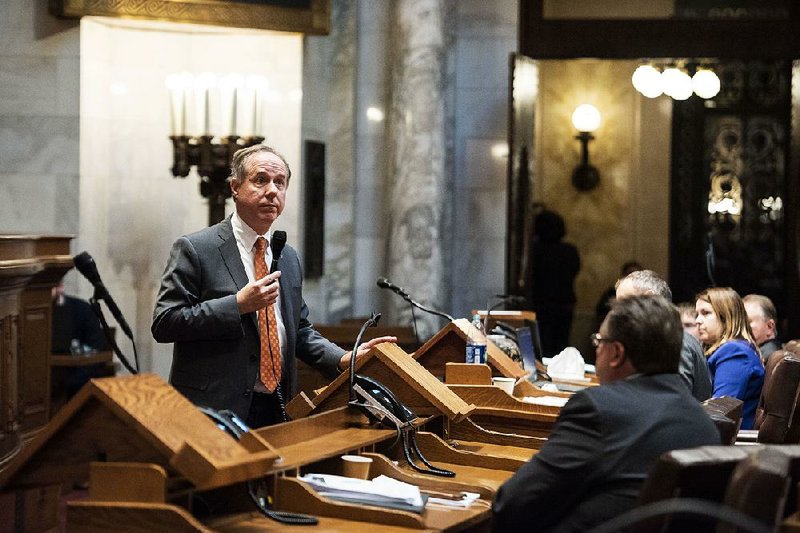MADISON, Wis. -- The incoming Democratic governor of Wisconsin said Wednesday that he plans to make a personal appeal to his defeated rival, Gov. Scott Walker, to veto far-reaching GOP legislation that would restrict the new administration's powers.
Wisconsin Republicans pushed through protests, internal disagreement and Democratic opposition to pass the bills after an all-night session. The measures would shift power to the GOP-controlled Legislature and weaken the authority of the office Republicans will lose in January.
"The will of the people has officially been ignored by the Legislature," Gov.-elect Tony Evers said, adding that the lawmakers' actions "take us back to Nov. 6," before the election was finalized.
"Wisconsin should be embarrassed by this," Evers said.
He said he will talk to Walker as soon as the bills reach his desk and that if he cannot persuade the governor to veto the proposals, he will consider lawsuits and any other option "to make sure that this legislation does not get into practice."
The early-morning votes were the height of a rare lame-duck legislative session. Walker has signaled his support for the bills.
The session unfolded a month after Republicans were battered in the midterm election. They lost all statewide races in the strong Democratic turnout. But they retained legislative majorities thanks to what Democrats say are gerrymandered districts that tilt the map.
A Walker spokesman said the governor, who was in Washington for former President George H.W. Bush's funeral, would not have any public comment Wednesday.
The new legislation tries to protect some of the GOP's achievements in recent years, including a work requirement for some people receiving state health care and the state's role in a lawsuit seeking to overturn the Patient Protection and Affordable Care Act. The bills also could make it harder for Evers to renegotiate a $3 billion subsidy for a Foxconn electronics manufacturing facility, a deal spearheaded by Walker.
The Wisconsin legislation passed in a session marked by stops and starts as GOP leaders tried to muster enough votes in the Senate. That chamber ultimately approved the package 17-16 around sunrise, with just one Republican voting against it. The Assembly approved it on a 56-27 vote about two hours later, with a single Republican in opposition.
In neighboring Michigan, Republicans who control the Legislature voted Wednesday to advance a measure that strips campaign-finance oversight power from the Democratic secretary of state-elect.
Michigan Democrats in January will jointly hold the governor, attorney general and secretary offices for the first time in 28 years, but the Legislature will continue to be controlled by Republicans.
A day after GOP lawmakers finalized an unprecedented maneuver to gut minimum wage and laws on paid sick leave, a Senate panel passed legislation that would create the Fair Political Practices Commission to enforce the campaign-finance law rather than Secretary of State-elect Jocelyn Benson, who ran in part on a pledge to advocate for election transparency.
The bill could clear the full Senate today.
Also Wednesday, the House voted 58-50 for legislation that would empower the Legislature, House or Senate to intervene in any suit at any stage, a right already granted to the attorney general. A bill that won Senate approval over Democrats' objections would influence how Benson implements a new voter-approved constitutional amendment that establishes an independent redistricting commission to draw congressional and legislative maps instead of the partisan Legislature.
The former measure is seen as a maneuver to ensure that Republicans could support laws if Democratic Gov.-elect Gretchen Whitmer and Democratic Attorney General-elect Dana Nessel are lukewarm about GOP-passed measures and drop appeals in cases the state loses.
North Carolina lawmakers took steps to limit the power of incoming Democrats two years ago, but this week, a Wake County judge ruled that the General Assembly unconstitutionally allowed outgoing GOP Gov. Pat McCrory, not Democrat Roy Cooper, to pick the leadership of the Industrial Commission, which rules in workers' compensation cases. The lawmakers also let McCrory's appointment to a commission vacancy be extended until 2025. McCrory appointed his chief of staff's wife, Yolanda Stith, and named her vice chairman.
The judge's ruling ends her appointment next year instead. Information for this article was contributed by Ivan Moreno, David Eggert and staff members of The Associated Press.
A Section on 12/06/2018
